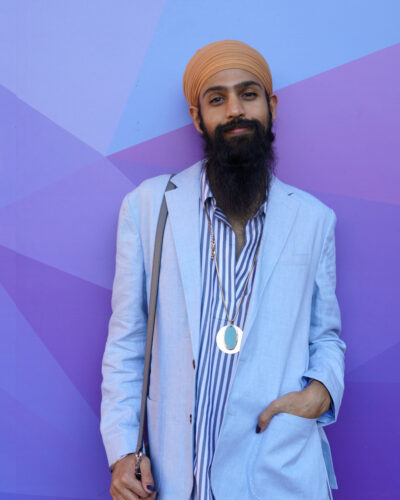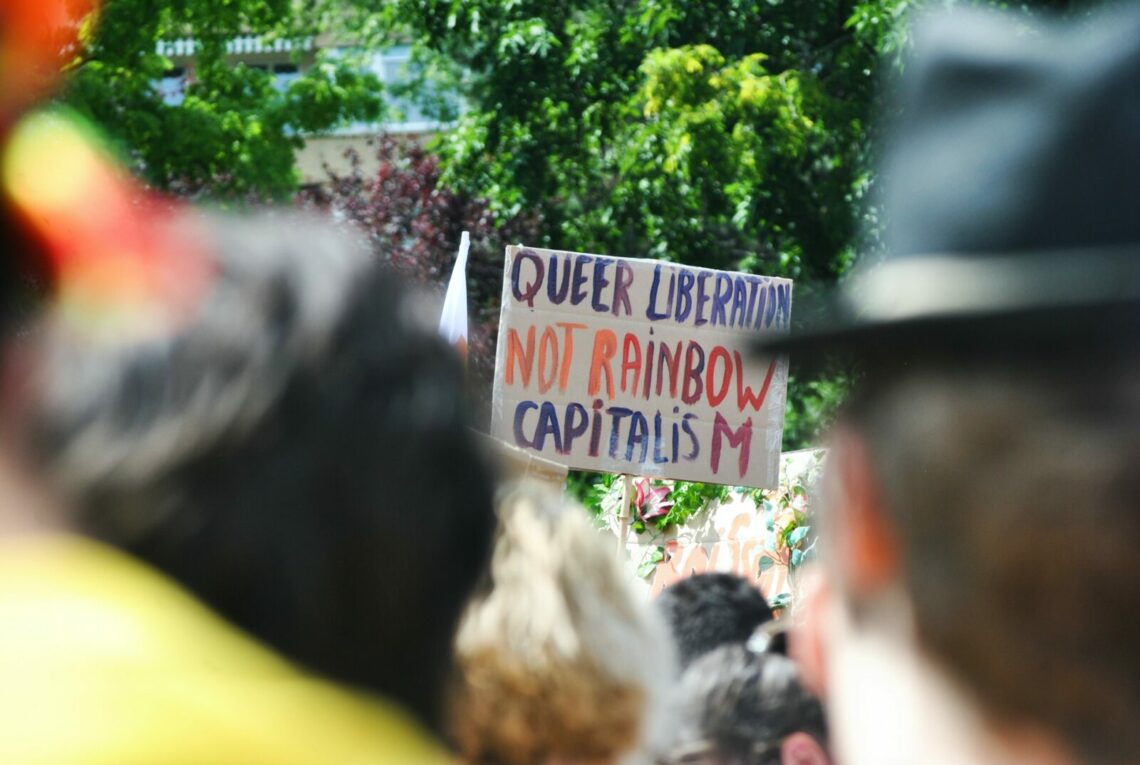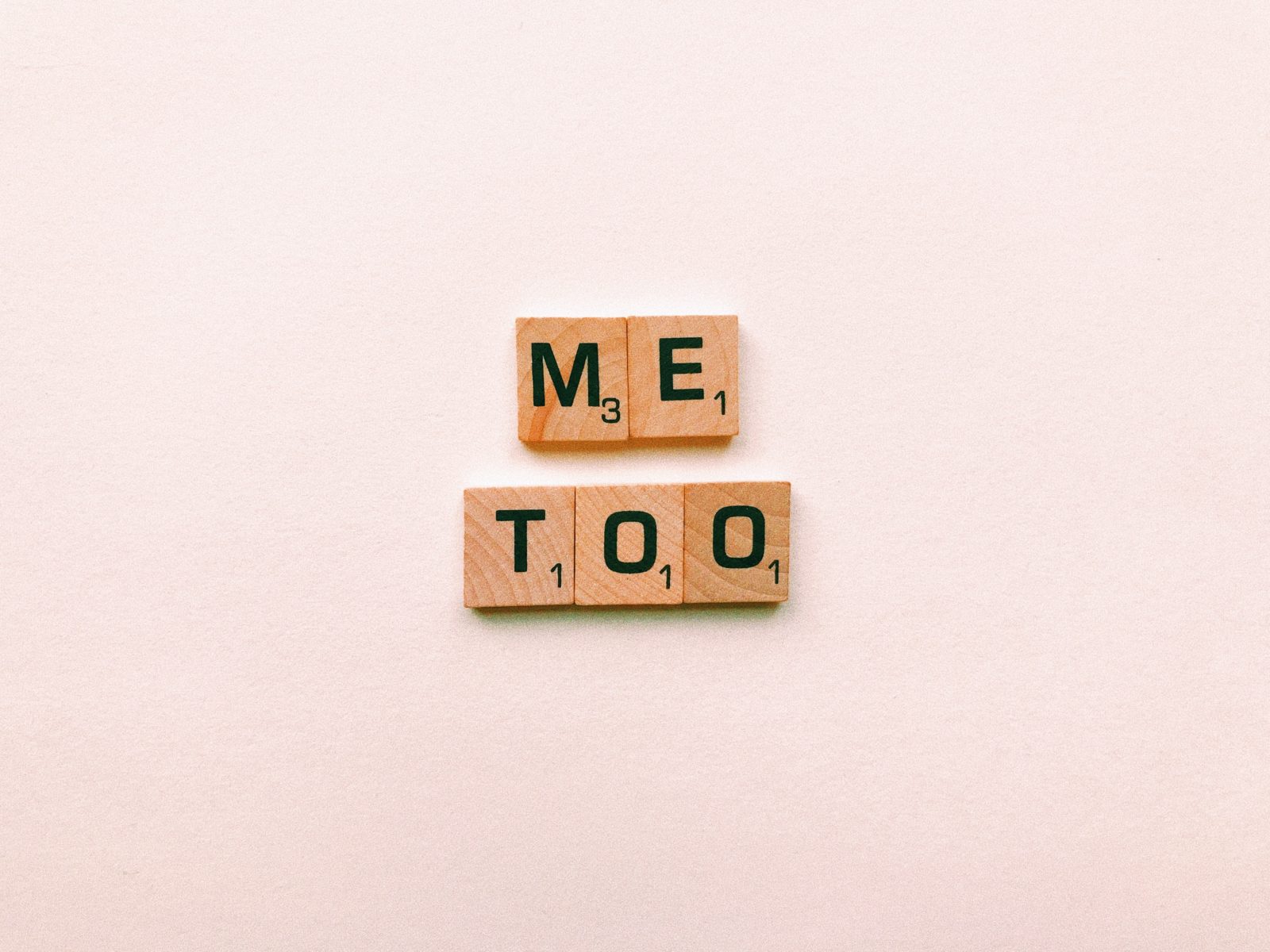by prabhdeep singh kehal
prabhdeep singh kehal (they/them) is a writer, community scholar, and educator. Passionate about social justice and Gurmat, prabhdeep shares their thoughts on the proposed laws targeting transgender communities. In part 1, they write about the bills, a Sikh perspective, and personal experiences. In part 2 (below), prabhdeep interviews several Transgender & Queer Sikhs and showcases their challenges & hopes for our society and panth. They also share ideas on how allies can help.
Content note: Mentions of suicide & violence
Testimonials from Our Sangat
We put out an open call to queer and/or trans-identifying Sikhs who wished to share their experiences and knowledge regarding Sikhi, their lived experiences as queer and/or transgender Sikhs, and how they are experiencing the current legislative attack on transgender youth and communities. From those who were willing to talk with us, we shared four questions and asked that they respond as best they could from their experiences. We provide abridged answers where appropriate and full responses otherwise. The questions were informed by Jap Ji Sahib when Guru Ji tells us what power we have over our ਜੀਵਣਿ (jeevan, living), ਰਾਜਿ (raj, ruling/governance), ਸੁਰਤੀ (surati, knowledge/understanding) ਜੁਗਤੀ (jugati, skillfulness/pathway).
1. ਜੀਵਣਿ (jeevan, living)
What would you want your fellow Sikhs to know right now about the current laws being instituted?
“The intersection of my queerness and my Sikhi has meant that, like so many others, I have needed to choose my sangat. My sangat are the queer, the gender non-conforming, the trans folks, and the non-binary people who are often not thought of when we say ‘sarbat da bhalla’ (may everyone prosper) in our ardaas. I have witnessed suicidality in trans friends who lost access to healthcare and therefore couldn’t afford their HRT (hormone replacement therapy), and it is terrifying to watch loved ones’ lives depend on the success of crowdfunding campaigns for care. Others were forced back into ‘the closet’ by family pressure or work discrimination, and it led to one hospitalisation and several destructive behaviours previously unobserved in those individuals. Still others have made attempts, and devastatingly, two friends of mine over the years succeeded in killing themselves. Even in death, their families and obituaries misgendered and deadnamed them. These laws cutting off trans youth from gender-affirming healthcare will absolutely, without a shadow of a doubt, end up in dead trans youth. I want the greater Sikh sangat to come to know my sangat – the sangat of beautiful people not given a fair shake by this society, the sangat who only wishes to love whom they love and live authentically. I want them to include this community in their seva with the same generosity of spirit and love as any other.”
–Baljit is a queer cis Sikh woman who lives in Georgia, USA
“Such laws that are criminalizing transness are moving us towards the criminalization of Sikhi. Our Guru Sahib always centered Sikhi around the most marginalized. Sikhi was created to recognize and hold sacred those who otherwise were (and continue to be) criminalized and denied their sanctity. Through further legislating the gender binary, these laws are a threat to the very principles and essence of Sikhi. In a brahminical and white supremacist world, our existence as Sikhs has already been criminalized from Sikhi’s very existence and these laws erasing trans peoples (including trans Sikhs) is situated within that larger and ongoing attempts of erasing Sikhi.”
–manmit, a trans non-binary Sikh
“Sikhism teaches us to protect the rights of others, to care for all humanity and to live to the highest spiritual level. With that in mind, I urge my fellow Sikh [siblings] to understand the current laws being put forth that are detrimental to the livelihoods of transgender and gender non-conforming communities across the country. As Sikhs, we have a duty to stand up for vulnerable communities despite the odds and fight for what is right.”
“Guru Tegh Bahadur Ji tirelessly encouraged his followers to be fearless in their pursuit of a just society. His martyrdom helped to make human rights and freedom of conscience central to its identity. Therefore, in these current and trying times we need to follow in his teachings to better help our trans and gender non-conforming siblings…We need to unite as one to make sure everyone is provided with adequate access to healthcare as well as ample resources to reference when it comes to housing, nutrition, sexual health, hormone therapy and mental health. As a society, we need to hold ourselves accountable and educate one another because times are changing before our eyes. It is no longer acceptable to say ‘I didn’t know’ or ‘I was never taught that’ because excuses are another way of saying ‘I don’t care’.”
–Sundeep, a Queer Sikh Man who lives in New York, New York and works as health administrator for one of the largest transgender-focused programs in New Hyde Park
2. ਰਾਜਿ (raj, ruling/governance)
From your own experiences in Sikh spaces, what could be strong and effective actions to support local communities being impacted by these laws and queer and trans Sikh youth who are internalizing these laws, as well?
“As a trans non-binary Sikh, Sikh spaces have been the most violent than any spaces I have been in. To be violated by the people who are taught to be your sangat is one of the worst. As Sikh spaces have continued to sanction brahminical (jatt) cisheteropatriarchal violence, Sikh spaces need to commit to reconciliation and healing for the queer and trans Sikhs who are being impacted right now by these laws but are not able to seek support from their own sangat/community. What this reconciliation will look like is a conversation that needs to center queer and trans Sikhs, but that work can start with Sikh spaces even recognizing the existence of queer and trans Sikhs that at this current moment is nonexistent.”
–manmit, a trans non-binary Sikh
“Before providing actions on what we can do, we need to work on breaking down the barrier around conversations pertaining to queer and trans folx of experience. Most Sikh individuals cringe or are dismissive of conversations relating to gender and/or sexuality… Gurmat camps are an important initiative that is utilized by many gurdwaras across the country that educate individuals on Sikhism, gurbani, seva and so on. I believe utilizing our Gurmat Camps as a way to educate our Sikh youth would be a great tool in breaking barriers pertaining to conversations around gender. Children have the ability to absorb so much information and while teaching them young we are creating strong and effective ways to combat discrimination, homophobia and transphobia.”
–Sundeep, a Queer Sikh Man who lives in New York, New York
3. ਸੁਰਤੀ (surati, knowledge/understanding) and ਜੁਗਤੀ (jugathi, tactics/pathway)
Often these topics get separated from other issues marked as “Sikh” – the ongoing pandemic in India, casteist violence throughout South Asia and Sikh communities, and the Kisan-Mazdoor Andolan, for instance. For those in the US and in other such geographies legislating anti-transness, how would you say the current anti-transgender law initiatives are connected to Sikhs’ lives in the US? Or elsewhere if that is where your experience is based.
“Separating out the issue of anti-trans laws as a non-Sikh issue is extremely violent in the ways that one, that it erases the existence of queer and trans Sikhs, and two, fails to uphold the very essence of Sikhi. Though these laws are being legislated at the national level, such laws seem to already be instituted in gurdwaras that promise to be spaces of sangat. Sangat is where Waheguru is supposed to be found but if Waheguru is one and collective, there is no Waheguru without queer and trans peoples in sangat.”
–manmit, a trans non-binary Sikh
“Honestly, I believe that majority of Sikhs are unaware or oblivious to the anti-transgender laws that are being discussed in real time. Many Sikh individuals do not even know a queer or trans person of experience in their networks therefore a lot of these initiatives aren’t discussed in Sikh spaces. For many of my friends and family, I am the only Queer Sikh individual they know. With that being said, that is an issue that is mirrored across the country within the Sikh community. Majority of Queer Sikhs live in hiding or in the closet due to societal and cultural norms as well as for their own safety and security. I continuously talk about the importance of Queer and Trans Sikhs to come out and live their true authentic self to continue on this movement of normalizing homosexuality and queerism within the Sikh community. We need more folx to live their true selves so we can continue these tough conversations in spaces where they have not even begun to discuss such issues.”
–Sundeep, a Queer Sikh Man who lives in New York, New York
4. ਜੁਗਤੀ (jugati, skillfulness/pathway)
From the work you do within Sikh spaces and outside – as a student, activist, or employee – what is something supportive Sikhs could do to alter their daily rehat? A rehat that may currently rely on not talking about, not discussing, or not positively acting on these types of social and political issues and how they affect Sikhs’ lives? Especially as more and more youth talk about the intersections of so many issues in their lives, from climate, to policing and safety, to work and dignified livelihoods?
“I would like to see Sikhs becoming more politically involved in every way: contacting their representatives, protesting, and being visible in the opposition to these anti-trans laws. Simultaneously, I’d like to see Sikhs challenging our families and local sangats to learn more about what it is to be trans or gender non-conforming, but also speaking up in any space they are in where there are anti-trans attitudes. Mindsets will not change without an active effort to change them, and that should be a focus of Sikh allies.”
–Baljit is a queer cis Sikh woman who lives in Georgia, USA
“For one, Sikhs need to understand how such laws are already unofficially legislated within our spaces–in our gurdwara and through documents like the Rehat Maryada, and how all of these deviate and fail to uphold the rehat the Guru Sahib themselves taught us. There isn’t a need for a new rehat but instead, the need for a better understanding and practice of the rehat that the Guru Sahib already has taught us –a rehat that at this current moment is NOT represented through documents like the Rehat Maryada written by cishet caste privileged ‘Sikhs’ in the Akal Takth.”
–manmit, a trans non-binary Sikh
“As PRIDE month approaches, I believe it is very important for supportive Sikhs to understand and learn Queer history. It provides a perspective less focused on the sexuality component and more so on the struggles and challenges that had to be overcome to be able to get to where we are as a Queer society. Supportive Sikhs need to understand that there has been a constant spike in bullying and harassment when discussing LGBTQ youth. Queer and Trans youth are afraid and anxious about what their futures might hold. Therefore, if you see such types of behavior it is essential to acknowledge it and do something about it as well as be on the lookout for those who might be at risk. I recommend listening to the youth. If an individual finds comfort in coming out to you please make sure you listen to them and acknowledge their story. If you do not identify with the LGBTQ community, that is okay but try and find resources or a point person that individual can speak with to further help them along with their coming out journey. It is also important to be a role model for kindness and inclusion. No one should have to tolerate hate speech. Allow young people to be authentic and let them express themselves freely. Once they notice you living authentically, they will feel inspired to do the same. Normalize authenticity! In order to make serious change, I encourage anyone who is passionate to take action at the local level to create safe spaces. Lastly, make sure you stay informed and get involved! As a Queer Sikh individual, when I notice my cis hetero Sikh brothers and sisters standing up and fighting for us and supporting us it provides a feeling of solace.”
–Sundeep, a Queer Sikh Man who lives in New York, New York
From Reading to Acting
While the Governor of Florida decided to begin Pride month by signing his state’s slew of anti-transgender laws, I invite you to do something different – including not giving your money to corporations or states that use rainbow flags to hide their various types of explotiations. These testimonials share very different sets of experiences but they are unified in their call for one thing: put your money and support in the hands of actual people, not only major organizations with whom you may have no plan of staying connected. Make monthly goals on how to update your ongoing advocacy to include fighting against anti-queerness and anti-transness.
Take what these Sikhs have shared with you and think about ways you can influence your family, friends, local sangat, and government to create a more just, compassionate and inclusive community. For many, it will not be a single conversation or even a handful of conversations but ensuring equity was never going to be easy in a world that makes profit off inequality. As Baljit said, when we say “‘sarbat da bhalla” – “may everyone prosper”–, we should mean everyone.
Here are a few ideas you can get more proactive:
For LGBTQIA Sikhs
- Find spaces and organizations that provide some space to breathe. Check out Sarbat’s virtual events and see if any of them resonate with you or Sher Vancouver. If you’re more comfortable with digital spaces, maybe some of these platforms will share helpful resources: Queer Punjab, Queer South Asian Woman’s Network, Asra, Tarakī, 3HO Sikh Marriage Equality.
- Create communities with others where all of your identities can be honored and respected. We are stronger together. While Sarbat is based in the UK, their list of resources is a great starting place to potentially find support closer to you.
- We are our best advocates and, unfortunately, that often means knowing more than we need to know. For those who are able and willing to take on these more active fights – whether because you can afford the risk or because you cannot afford not fighting – read materials and listen to content that can help you articulate your needs and viewpoints to others with your urgency. Remember how our fights are tied to the fights of many other communities, as well.
- Find out what taking care for yourself means and what you need to safeguard your mental health.
- Engage in activities that help you feel complete, whether that’s protesting against the bills, or rejuvenating with times of silence.
- Use your skills to organize! Write articles for different magazines (send Kaur Life a pitch or ask for advice!), websites and outlets or speak on podcasts about the importance of pushing back against these bills.
For Allies
- Learn: Read about the bills and understand their detrimental impacts. A great starting place is to read all the links from the article in part 1 or the list of resources from Armaan (or at the end of this piece). Find a buddy with whom you are comfortable being vulnerable and making mistakes, and go through them together.
- Check out these Kaur Life articles on related topics:
- Transgender Sikhs Risk Losing Gender-Affirmative Healthcare: Understanding Why that Matters
- Policing the Bodies of Transgender & Queer Sikhs
- How to Transcend Gender & the Violent Mind
- When Will Caste-Oppressed and Queer and Trans Folks Find Liberation in Sikh Spaces?
- Who is a “Sikh”? How people use caste & cisheteronormativity to gate-keep Sikhi
- How to Create a Panth that Supports Caste-Oppressed and Queer and Trans Folks
- The Panth’s Mental State – Part One – Assessment
- Why Do We Deny Our Fullness? Exploring Gender in Sikhi
- Listen: Listen to the communities you are trying to help, let them take the lead & you follow, give them space.
- Speak Up: Speak to your family & friends about these issues. Even if you do not know anyone who identifies as part of the LGBTQIA+ communities, that does not mean someone near you would not benefit from learning more about the world we live in.
- Fund: Set up recurring donations for initiatives being led by LGBTQIA+ communities near you. It could be housing or health initiatives (two very big, recurring issues) – find out what LGBTQIA+ communities in your area are fighting for. Start local.
- Volunteer: Find organizations that support LGBTQIA initiatives and volunteer with them.
About prabhdeep

prabhdeep (they/them) is a writer, community scholar, and educator (and Kaur Life Board Member!). As a sociologist and doctoral candidate at Brown University, prabhdeep researches how people and communities make knowledge about race and racism, and how they use this knowledge in their lives. In their academic work, they broadly question how colonialism persists within US higher education and, specifically, how these ideas about race are used in the processes of hiring, promotion, and defining merit (what counts as good) in academia. prabhdeep’s community-based work focuses on working with others within the global Sikh diaspora to identify and fight how white supremacy, anti-queerness, and gender conformity emerge in our lives. At Kaur Life, prabhdeep will be using their training as a historical and cultural sociologist, along with their Gurmat-based practices of Sikhi, to foster transnational conversations on gender, sexuality, and casteism, and the intersections therein.





2 Comments
Elizabethg Moran
04/08/2022 at 10:28 pmI “left” formal Sikhi 35 years ago, because I knew that I identified transgender and I was convinced that I could not live both paths together. It was the toughest decision of my life. I had only taken Amrit two years earlier. Leaving the Dharma crushed me emotionally, but I was almost used to a life of emotional turmoil, disappointment and conflict.
I was assigned male at birth, yet knew I identified as female, emotionally, mentally, and spiritually since the age of five.
What may alienate your readers here, from my story, is that I was born outside of Sikh culture or parentage and only began to study the dharma of the gurus when I was in college. The only Sikh people I knew were Americans who followed the infamous Yogi Bhajan, so I began to hang out with them and eventually went to live with the American Sikh community in West Los Angeles.
I did not trust Yogi Bhajan from the very beginning, something I kept to myself. I knew of a couple of spiritually electric Americans in the group and through them became familiar with the culture of the Nihung and started to learn gatka. I also wore blue bana with my turban styled more like the taller Nihung turbans, always kept 12 kirpan on me (pretty radical!), and the other 4 K’s. I irritated the established, white garbed Americans, no end. The highpoint of my time was being asked to cook for Sant Baba Nihal-ji when he visited Los Angeles. He was on a restricted diet due to complications from torture at the hands of the Indian Army during the siege of the Golden Temple. I had to make palatable dishes for him without any legumes. It was a challenge, and he was grateful.
But there I was a Queer Sikh in an era when there were “no queer Sikhs”. And I identified as a transfeminine person, although I did not appear feminine in particular. A few Americans and some of the Indian Sikh visitors at the ashram thought I might be gay, but it was never talked about, above whispers. My turmoil was mostly interior. One of my women friends who had led a lesbian life before joining the American Sikh milieu, knew I was queer and “femme” but that was as much as she ever suspected, and unfortunately I never opened up to her.
My personal tragedy and shame was that I had to leave the Dharma, despite having given my head to the Guru. It tore me apart, but I could not continue to live a lie to myself and God.
After I took off my turban and had my beard removed, I started transitioning to female in 1989, but had to abandon my efforts for lack of medical and social support. I was able to resume transition a few years ago, and am still in process, yet living full time as a female. I was at my job a few months ago and started reciting Jaap Sahib spontaneously. It had been 35 years, but there I was with tears in my eyes and singing the verse of Guru Nanak-ji. Later I started singing Ardas Bahee. I never learned Gurmukhi in the brief time that I was following the path. I had to scratch and beg for authentic teachings of the Gurus, but I found them and did my best to live by them during my times, good and bad.
So there is my story. It is only positive that I found a way to live my life authentically, but the sacrifice has been monumental to me.
In Love and Peace,
Elizabeth
col mmsingh veerum
07/25/2022 at 10:30 amIt is not appropriate to make use of Gurbani in a way where it is not befitting at all. In fact it is downright insulting the Gurbani.
Secondly, the so called “queer” person are actually not normal people, and are biologically mutated and deformed. They must be accepted and treated just as we treat the handicapped challenged or differently abled special persons.